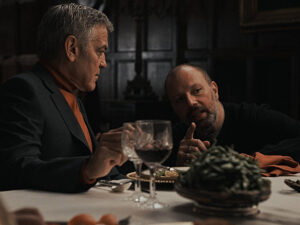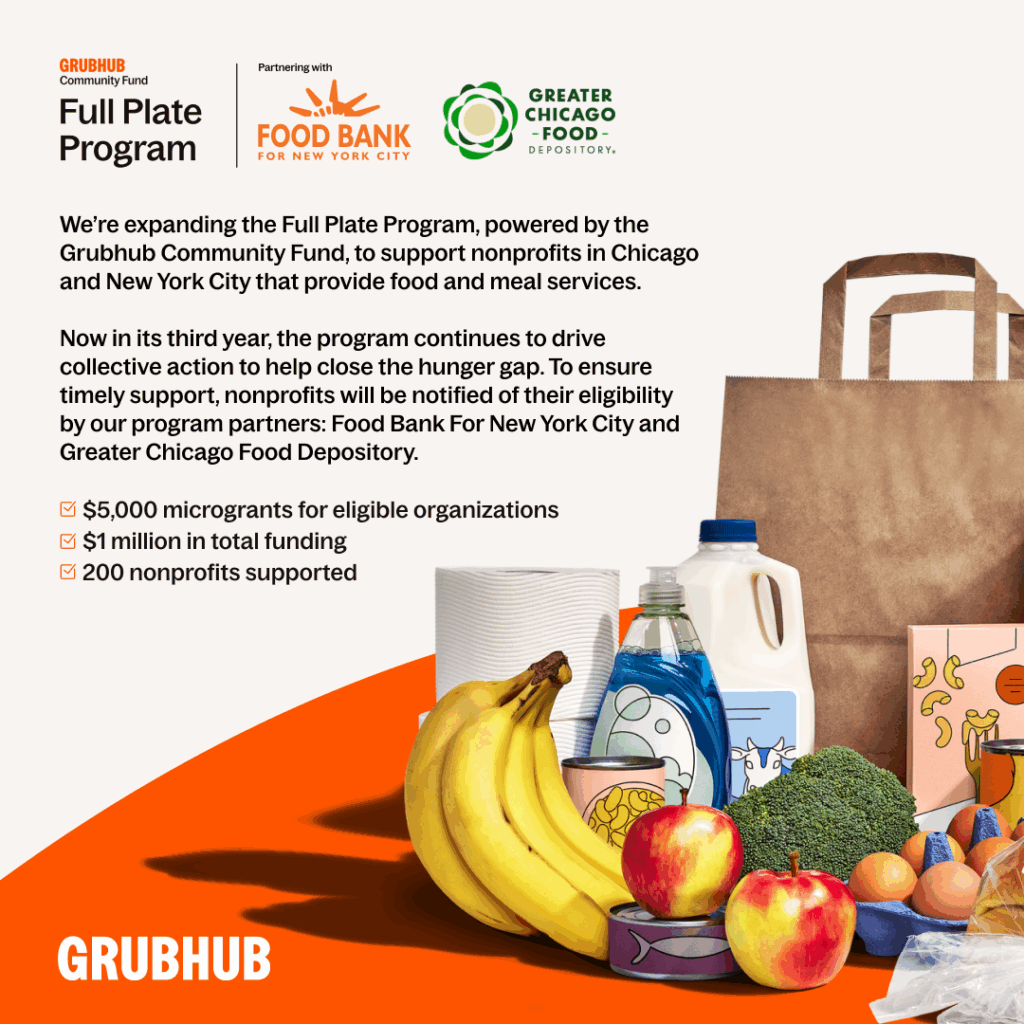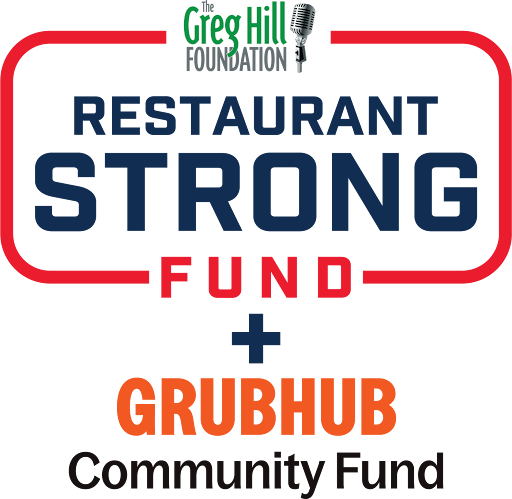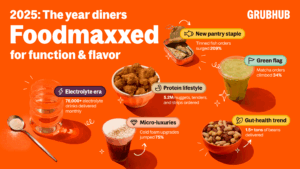To spotlight different perspectives and give an inside look at Grubhub, we’re highlighting leaders from across the organization. This month, we sat down with Jim Osborne, Vice President of Restaurants, to hear how he’s strengthening relationships with restaurant partners, shaping the future of Grubhub’s marketplace, and bringing a “curiosity-first” leadership style to the work ahead.

A quick round to get to know Jim:
- Favorite Grubhub order: I’m a big fan of Mino’s, a local spot along the North Shore in Chicago, exclusively available on Grubhub. My team actually signed them earlier this year, which was a huge win! Their pizzas, pastas, and salads are a family favorite at my house.
- Book you’ve read (or listened to) recently that you’d recommend: I’m currently listening to My Effin’ Life, the autobiography of Geddy Lee from Rush. As a Canadian, I grew up on Rush, so it’s been a fun listen on long drives. On the leadership side, my top recommendation is the TED Talk Everyday Leadership by Drew Dudley. It’s six minutes long and incredibly impactful.
- Coffee or tea: Coffee. Black and plentiful.
- Favorite way to unwind after a busy week: Sitting on our screened-in porch with my wife, the dogs, a bottle of red wine, good music, and a Grubhub order. That’s my ideal Friday night.
- Favorite productivity hack: I rely heavily on Siri voice reminders, especially the location-based ones. If I’m out meeting restaurants, I’ll say, “Remind me when I get home to follow up on this.” It keeps the small things from slipping through the cracks.
- A typical workday: Lots of meetings: with my team, cross-functional partners, and restaurant leaders. It’s a steady rhythm of conversations and problem-solving.
- A typical weekend: Much more relaxed. My kids are older, so weekends involve projects around the house, time with family, and if the weather cooperates, a round of golf.
You’ve been at Grubhub for a little over a year and a half. What made you want to join?
I spent 12 years at US Foods and fell in love with the restaurant industry. It’s an incredibly tough business with long hours, tight margins, and so much heart. That made me passionate about helping restaurants be more successful.
When I met with Howard, he painted a compelling vision for how Grubhub could do exactly that, and how we were positioned for real growth. I was also drawn to the challenger mindset. Being a challenger means you get to try new things, break things, and move fast. That was exciting and appealing to me.
You’ve worked across several different companies and industries. What did you learn in those roles that shape how you lead today?
Every company I’ve worked for — Home Depot, Sears, Loblaw, US Foods — had a different culture. Across all of them, three things consistently stood out to me:
- The power of relationships: Strong relationships make everything easier — within your team, across the organization, and with customers. Trust allows for real conversations and faster problem-solving.
- Passion: I look for people who genuinely love what they do and bring energy to it. Passion shows up in how someone tackles challenges and drives change.
- Curiosity: People often define sales as “always be closing,” but my version is always be curious. Curiosity pushes you to ask better questions, explore new solutions, and think differently about how to help restaurants succeed.
Tell us about the Merchant Network team. What are the core responsibilities and focus areas?
Our team manages the restaurant side of Grubhub’s marketplace — the full network of merchants that powers our platform. This includes:
- Signing great restaurants of all sizes
- Growing and strengthening existing partnerships
- Supporting restaurants with their operational success
- Retaining partners by delivering value, reliability, and strong relationships
- Managing everything from neighborhood independents to national brands
At the end of the day, our job is to ensure diners find the restaurants they love, and to help those restaurants grow their business on Grubhub.
What are some notable restaurant wins from this year that you’re proud of?
We’ve had tremendous success nationwide, but New York has been a major focus and proof point. This year, we signed some incredible names, including John’s of Bleecker Street, Momoya, Jack’s Wife Freda, Nami Nori, and Anthony & Sons Panini Shoppe. These are iconic spots that help strengthen our leadership position in the market.
But it’s not just New York. We’ve added incredible restaurants and meaningfully improved the assortment across the entire country. One story that really stands out to me is a long-running family deli in New Jersey. They’ve operated the same way for decades with phone orders, a fax machine, and a small storefront that locals know by heart. They are cash only, and if someone called in an order and didn’t make it in before closing time, they’d literally leave the sandwich at the pharmacy across the street and settle up next time.
Seeing a place like that embrace Grubhub for pickup — and immediately reach a new set of customers — was incredibly rewarding. It’s such a powerful reminder of why our work matters. Whether it’s a national enterprise brand or a multigenerational independent, we can help restaurants grow in ways they never could before.
Enterprise is an important part of our marketplace. How is your team nurturing relationships in that space?
With enterprise, we largely have the supply, but the unlock now is demand generation. That means deepening relationships, expanding locations, adding pickup options, partnering on major marketing moments, like the McDonald’s Monopoly program, and leveraging our strong campus presence, where students over-index on enterprise brands.
We’ve made great progress, and there’s a lot more opportunity to accelerate heading into 2026.
How do you balance the focus on New York with growing supply in other cities?
New York has been a key focus and an important testbed, but we’ve been expanding supply everywhere. In fact, so far in 2025, we’ve signed up restaurants in over 7,300 cities and communities across the US.
With national partnerships like Amazon and Instacart, plus big moments coming in 2026 like a commercial during the Big Game, it’s important to keep building our supply everywhere. We want diners in every city to open the app and see fantastic choices
Why are relationships with restaurants so important to Grubhub’s success?
In this industry, relationships are everything. For independents, it’s about the trust built over time. For enterprise brands, it’s about consistency, partnership, and being easy to work with. A great example: We recently received a letter from one of our top 25 restaurant partners in the country, and he spoke so powerfully about how the relationship with our team and hands-on support have helped his business thrive. That conversation really reinforced for me that these relationships aren’t just nice to have; they’re core to Grubhub’s success, to restaurant loyalty, and to what makes our marketplace stronger.
What are you most proud of your team for this year?
Their resilience and versatility. We’ve pivoted multiple times — leaning into New York, expanding supply nationally, navigating the end of fee caps in NYC, and supporting major partner changes. The team has handled every shift with ownership and energy. Their ability to adapt and keep delivering is what I’m most proud of.
What’s the best piece of leadership advice you’ve ever received?
Two pieces have stuck with me: “You have two ears and one mouth — use them in that proportion.” A good reminder to listen first.
“Assume positive intent.” It’s easy to get defensive. If you pause and assume the other person is coming from the right place, the conversation completely changes.
How have you evolved as a leader over time?
Early in my career, I focused mostly on my direct team. Over time — especially during COVID — I realized the importance of connecting more broadly.
I started scheduling 15-minute skip-levels with people at all levels. Sometimes we talked strategy; sometimes it was what they were watching on Netflix. It wasn’t formal mentorship, it was connection. And it helped people feel part of something bigger. I still try to prioritize that today.
You’ve developed a reputation for turning strategy into action. How do you approach that with your teams?
One of my favorite quotes is attributed to Thomas Edison: “Strategy without execution is hallucination.”
The strategy aligns us, but execution is where the work happens. To me, that means being clear on direction, empowering people to act like owners, staying curious, and focusing on getting things done. I’m a big believer in GSD — “get shit done.” That’s how points get on the scoreboard.
What excites you most about where we’re headed in 2026?
I’m wildly optimistic. We’re seeing sparks everywhere — order growth, new restaurant wins, the Instacart partnership, and a major media plan coming together. The momentum is real. We’re on the right path, and now it’s about accelerating.
If you could have any other job at Grubhub or Wonder for a day, what would it be and why?
I’d trade places with Marnie Kain (VP, Head of Brand), but only on a specific day — either when she gets to see all the commercial pitches for the Big Game, or the day she’s on set filming the commercial. That would be incredible.













